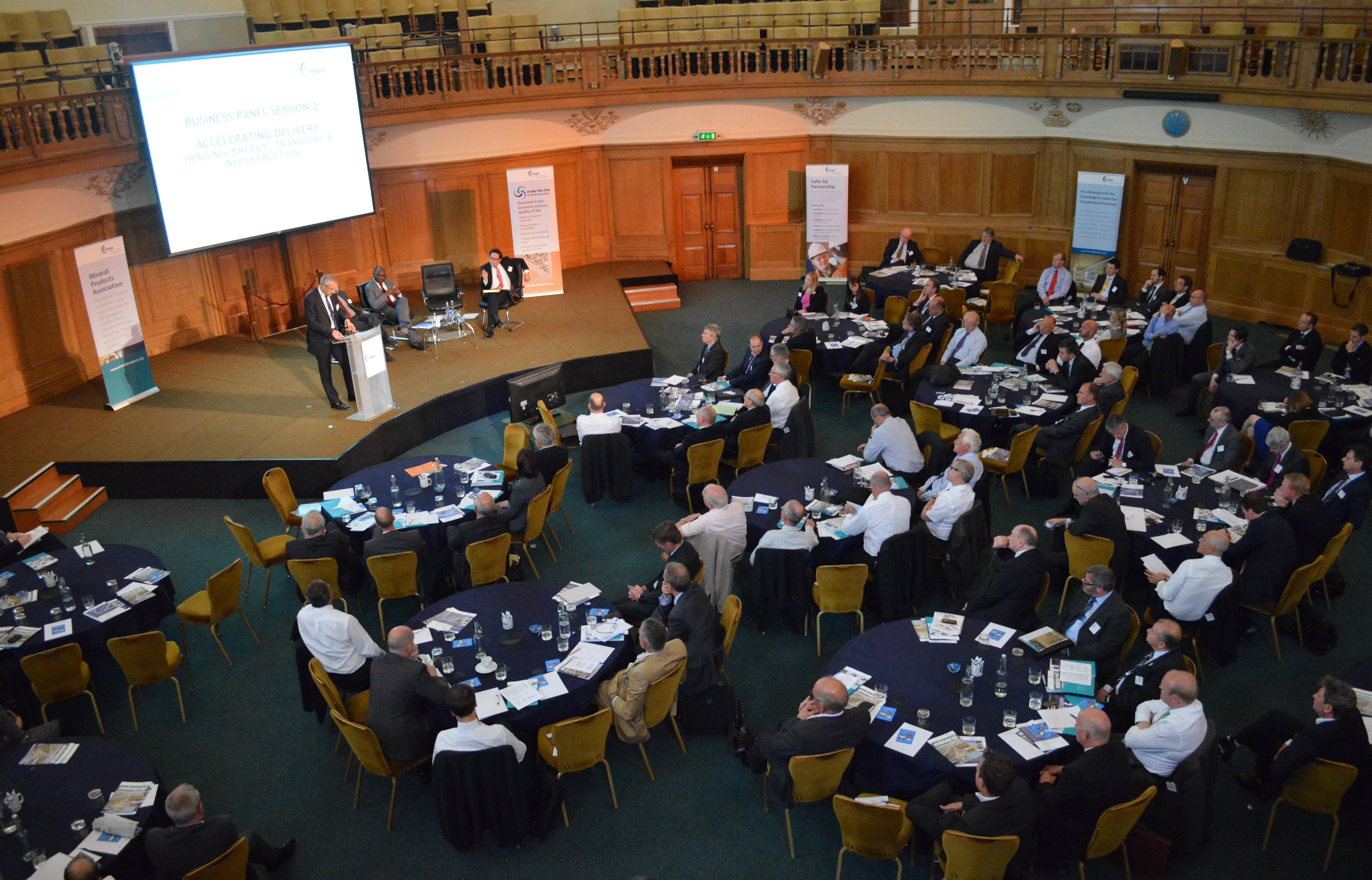
The 4th
Both events attracted audiences from over 60 organisations, and the theme of the general assembly was Accelerating Delivery, with a keynote speech from Lord Deighton, Commercial Secretary to the Treasury.
Two interactive business panel sessions looked at the economic outlook, housing, energy, transport and infrastructure, and attracted a range of expert speakers.
Lord Deighton 'made the link' in his address by recognising the sector’s economic contribution.
He said he was very clear on the connection between what the mineral products industry does, how that flows through to the economy and how it supports many other businesses.
He also stressed that (UK) government fully appreciates the importance of accelerating delivery of infrastructure and of converting good ideas, intentions and policies into things that really happen, and outlined how it aims to achieve this.
The two business panel discussions hinted that there are now signs of economic growth, but that the need for increased investment in infrastructure remains.
In the first session, Stephen Gifford, CBI director of economics, said that the negative risks such as Eurozone uncertainty and performance are now balanced by more positive factors and growth should result.
Kevin Daly, managing director and senior economist at
Both emphasised that recovery was likely to be gradual and both raised concerns at the historically low levels of infrastructure investment in the UK, which acts as a drag on growth, as well as government’s decisions in 2010 to cut investment.
However, the belated objective to now increase overall infrastructure investment was also acknowledged.
XHD: Increasing business
In the second session, Peter Andrews, land and planning director of Taylor Wimpey, indicated that housing prospects were improving and that the ‘Help to Buy’ initiative introduced in the Budget was generating increasing business, following the 10% drop in housing starts in 2012.
He was concerned about the slow progress of local authorities in delivering new development plans and about the longer term implications of localism.
Lawrence Slade, chief operating officer of Energy UK outlined the existing UK energy mix, which still includes a 36% reliance on coal-fired electricity generation, and concerns about future supply.
He said the current Energy Bill should help clarify the regulatory environment for new investment and it is essential that government gets its energy policy correct now as this policy will determine if energy companies are able and willing to make the investments urgently required in the UK.
Dr Nelson Ogunshakin, chief executive of ACE and co-chair at the National Infrastructure Plan Strategic Engagement Forum (NIPSEF), described the policy and processes underway to identify outstanding infrastructure requirements and encourage delivery of projects.
He is concerned that the availability of government guarantees to support investment in infrastructure projects, for example the London Northern Line extension to Battersea, may be ineffective because of the conditions attached to such potential guarantees.
It is positive, however, that government is now engaged with the construction industry and its supply chain to better understand the practicalities of delivering major infrastructure investments.
XHD: Parliamentary Reception
After the general assembly at MPA’s Parliamentary Reception, Lord Deben, chairman of the Committee on Climate Change, stressed the need to support indigenous production.
He said he was in favour of production at home and that the industry should continue its good work to reduce its carbon footprint, with government providing security and certainty.
Nigel Jackson, chief executive MPA, said: “This year’s successful general assembly supported our ‘Make the Link’ campaign, which aims to highlight the mineral products industry’s essential contribution to the economy and quality of life.
“Our industry can play a key part in growth, but infrastructure projects need to be delivered more quickly. The key issue is about government converting well-intended aspirations into cash which can flow through the supply chain and support recovery.”
The MPA Members’ general assembly is an annual event which attracts a broad spectrum of member companies with the opportunity to discuss the main industry issues of the day.
The event was hosted this year by BBC Radio 4 Today programme business correspondent, Simon Jack.





